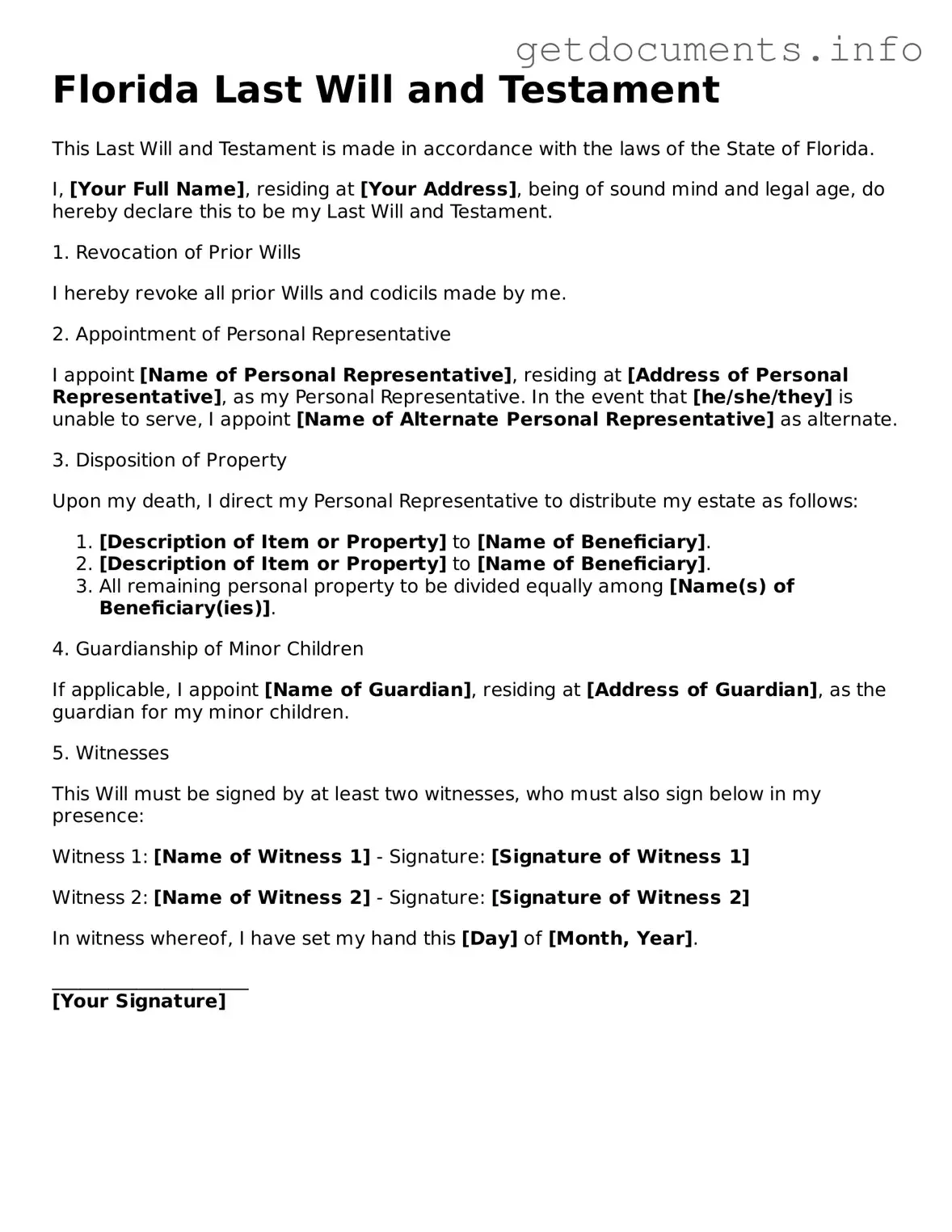Free Last Will and Testament Template for Florida
A Florida Last Will and Testament form is a legal document that outlines how a person's assets will be distributed after their death. This form ensures that your wishes are honored and provides clarity for your loved ones during a difficult time. Start planning for the future by filling out the form by clicking the button below.
Access Last Will and Testament Editor

Free Last Will and Testament Template for Florida
Access Last Will and Testament Editor
Got places to be? Complete the form fast
Fill out Last Will and Testament online and avoid printing or scanning.
Access Last Will and Testament Editor
or
⇩ PDF File
